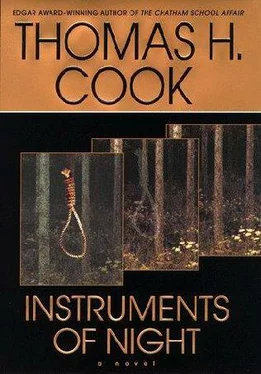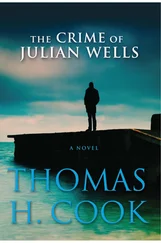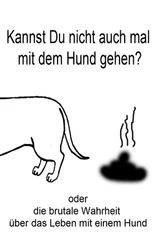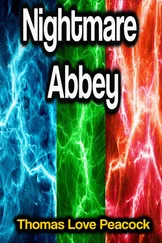Thomas Cook - Instruments of Night
Здесь есть возможность читать онлайн «Thomas Cook - Instruments of Night» весь текст электронной книги совершенно бесплатно (целиком полную версию без сокращений). В некоторых случаях можно слушать аудио, скачать через торрент в формате fb2 и присутствует краткое содержание. Жанр: Триллер, на английском языке. Описание произведения, (предисловие) а так же отзывы посетителей доступны на портале библиотеки ЛибКат.
- Название:Instruments of Night
- Автор:
- Жанр:
- Год:неизвестен
- ISBN:нет данных
- Рейтинг книги:3 / 5. Голосов: 1
-
Избранное:Добавить в избранное
- Отзывы:
-
Ваша оценка:
- 60
- 1
- 2
- 3
- 4
- 5
Instruments of Night: краткое содержание, описание и аннотация
Предлагаем к чтению аннотацию, описание, краткое содержание или предисловие (зависит от того, что написал сам автор книги «Instruments of Night»). Если вы не нашли необходимую информацию о книге — напишите в комментариях, мы постараемся отыскать её.
Instruments of Night — читать онлайн бесплатно полную книгу (весь текст) целиком
Ниже представлен текст книги, разбитый по страницам. Система сохранения места последней прочитанной страницы, позволяет с удобством читать онлайн бесплатно книгу «Instruments of Night», без необходимости каждый раз заново искать на чём Вы остановились. Поставьте закладку, и сможете в любой момент перейти на страницу, на которой закончили чтение.
Интервал:
Закладка:
But more than anything, Mrs. Flexner had never once during his long year of silence pressured Graves to speak. She’d always seemed quite confident that one day he’d talk again, that given time and patience, his shattered heart would mend.
It was this simple faith in his ultimate recovery, Graves supposed, that had made Mrs. Flexner finally insist that Sheriff Sloane stop making periodic visits to question him.
Graves had been sitting in the old wooden swing when the sheriff came that last time, close enough to hear what he said to Mrs. Flexner as the two of them stood together in the front yard:
Martha, the fact is, what was done to Gwen Graves was the most terrible thing I’ve ever seen.
I don’t doubt that, Sheriff.
She was hung, ma’am. Hung from a beam and cut open. Like an animal. Yes, I know.
And it’s been almost a year, and right now I don’t know one bit more than I did when I started. There’s just one thing I know for sure. Whoever it was, he’s still out there somewhere. Free as a bird. Looking for some other young girl.
I know, Sheriff.
That’s what’s so frustrating. The fact that I don’t have a thing to go on. Just car tracks in the driveway, that’s all. The boy, there, he’s the only thing I got that’s even close to a witness.
But if Paul wasn’t at the house, what good can he do you?
Not much, I reckon.
Well, back when he was talking, he said he hadn’t seen a thing. Said he never came to the house that night. Said he slept in the field a mile away.
Yes, I know he said that.
Then what’s the good of keeping after him?
Graves had always remembered how Sheriff Sloane’s eyes had slid over to him when he gave his answer:
Well, if he didn’t go home that night, then what about the hoe?
The hoe?
Why wasn’t it with him when we found him in the field?
Where was it?
Inside the house. Near where his sister hung.
A shadow suddenly spread across the diner’s speckled Formica table top, startling Graves, jerking him back into the present.
“Will there be anything else, sir?”
Graves glanced up. The waitress had long, straight hair, and for an instant she seemed to hang above him, swinging slowly, suspended by a cord but still alive, her hands clawing at the rope, red and raw, blood flowing down her arms in gleaming rivulets.
“How about a warm-up?”
Graves shook his head. “No, nothing else.” His voice was a whisper.
She nodded and moved away, leaving him in the booth, the thick white coffee cup squeezed tight in his fingers. He could see the two men in green coveralls as they began to saunter toward the far corner of the street. He was still watching when they reached the end of the block. Then a truck swept by, blocking his view. Once it passed, the pair was gone.
He finished the last of his coffee, rose, and headed out of the diner.
Normally, he would have gone back to his apartment after having breakfast. But the thought of returning to his typewriter, to a scene in which Slovak stood on a narrow ledge, staring hopelessly into Kessler’s triumphant eyes, did not appeal to him. Instead, he decided to take a stroll, observe the great spectacle of the city on a bright summer morning.
He’d arrived in New York in the fall, only a month after his eighteenth birthday. He’d had nothing but the meager money he’d gotten from the sale of the family farm, but it had been enough to buy a bus ticket, rent an apartment, and keep him fed and clothed until he’d found a job. He’d never been in doubt as to why he’d come to New York. He’d seen it portrayed countless times in movies and magazines, a dense cityscape that was the exact opposite of the wide fields and empty woods and remote farmhouses of rural North Carolina, all of which filled him with a panicky sense of dread. The sheer density of the place, its teeming crowds, answered his need to surround himself with high walls, to walk streets that were never deserted. Once in the city, he’d moved into the most crowded neighborhood he could find, into the largest building on its most congested street, and in that building had chosen the apartment that had the thinnest walls. He would never again live in a place where screams could not be heard.
It was a tiny studio that looked out over the southwest corner of First Avenue and Twenty-third Street, and at night Graves took comfort in the proximity of his neighbors, the sounds they made as they came and went from their apartments. Morning and evening were best, but regardless of the hour he overheard a steady stream of life, people padding up and down the narrow corridor, chatting or bickering as they went. It never mattered what they said, only that they were so close. He needed only to feel their nearness, their vigilance, their eyes upon him, their ears listening. For he knew that the greatest evils required isolation. They were carried out in distant woods, deep basements, lonely farmhouses. Places out of sight. Out of reach. Where nothing stirred but the will to harm. Never to be entirely alone, that was the only safety. He had concluded that such nearness was the only protection against what others might do to you. Or what you might do to others.
It was nearly noon by the time Graves returned to his apartment. He made a ham sandwich and ate it at the wrought-iron table on the terrace. It had little taste, as all things did to him. He felt textures, the gristle in the meat, the slosh of what washed it down. All else was mere gruel.
After eating, Graves returned to his typewriter and once again sought a way out for Slovak. But once again, nothing came. And so after an hour of futile striving, he lay down in his bedroom, hoping a short nap might refresh him, or that a solution might suddenly present itself in a dream.
He’d been asleep for nearly an hour when the phone rang. He rolled over and plucked the receiver from its cradle.
“Hello.”
“Hello, Mr. Graves? Allison Davies. I hope I’m not disturbing you, but I wanted to know if you’d looked at the photographs I sent you.”
“Yes, I did.”
“And have you reached a decision about coming to Riverwood?”
Graves realized that, in fact, he had made his decision, that while he’d slept, his imagination had played a scene for him, one that existed in none of his books. In the scene, Slovak crawls through a dank, dripping tunnel to find the decomposed body of a little girl. Even as he crawls, he knows that her body has been decaying for days, that nothing is left but slime and maggots. And yet Slovak goes on, dragging himself through the stinking muck because he knows that this pile of rotten flesh was once a blue-eyed child, one whose mother still waits for him to bring her murdered daughter home.
“Mr. Graves?”
“Yes, I’m here,” Graves answered. In his mind’s eye he could see the photographs Miss Davies had sent him. They were still spread across the table in the adjoining room, Mrs. Harrison’s letter resting forlornly in their midst.
“Well, will you do it, then?”
He heard Slovak whisper in his ear. Sometimes you must do a thing because your own darkness will overwhelm you if you don’t.
It was a line he’d written years before, written in his first book. But now it seemed like nothing less than the old detective’s solemn admonition, the dying wish of someone Graves had long ago created and now come to revere, his weary, wasted questioner of Cain.
“Will you come to Riverwood?” Miss Davies asked.
He gave his answer achingly, like someone beaten into submission, the word dropping from his mouth like a broken tooth.
“Yes.”
Thomas H. Cook
Instruments of Night
PART TWO
Oh, please, please, please..
Интервал:
Закладка:
Похожие книги на «Instruments of Night»
Представляем Вашему вниманию похожие книги на «Instruments of Night» списком для выбора. Мы отобрали схожую по названию и смыслу литературу в надежде предоставить читателям больше вариантов отыскать новые, интересные, ещё непрочитанные произведения.
Обсуждение, отзывы о книге «Instruments of Night» и просто собственные мнения читателей. Оставьте ваши комментарии, напишите, что Вы думаете о произведении, его смысле или главных героях. Укажите что конкретно понравилось, а что нет, и почему Вы так считаете.












